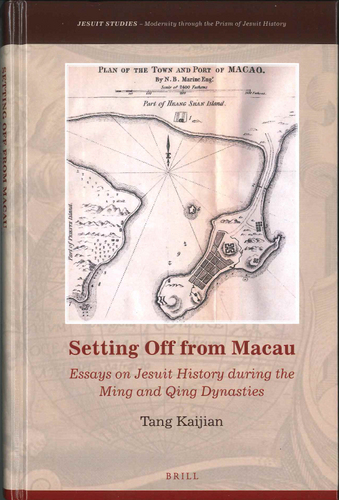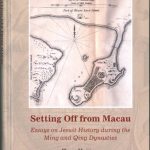 Setting Off from Macau: Essays on Jesuit History during the Ming and Qing Dynasties by Prof Tang Kaijian
Setting Off from Macau: Essays on Jesuit History during the Ming and Qing Dynasties by Prof Tang Kaijian
An essay collection titled ‘Setting Off from Macau:Essays on Jesuit History during the Ming and Qing Dynasties’, written by Prof Tang Kaijian from the University of Macau (UM) Department of History, has been published by Brill Publishers, a publishing house with a strong focus on the field of sinology. It is UM’s first English book on Macaology published by an authoritative European press. Setting Off from Macau is a collection of Prof Tang’s essays on Catholic history in China during the Ming and Qing dynasties. It covers a wide range of topics in Catholic studies, including Macao’s role in the spread of Catholicism in East Asia, the history of local missionary work, the spread of Catholic art in East Asia, the Catholic churches and church members in China, and the financial condition of the Catholic mission in China. These studies are based on solid historical materials from authoritative sources, from religious and government documents, memoirs, reports, to public and private recordings and material subjects. The book is not only based on historical sources in Chinese, but also on those in foreign languages, such as English, Portuguese, Italian, Latin, Dutch, and Japanese. Brill Publishers is one of the oldest academic publishing houses in the world, with a strong influence on the field of sinology. The publishing of Setting Off from Macau by Brill shows that the study and research on Macaology has entered a new phase.


